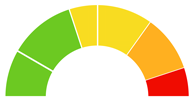Description: Arbitrary commands execution on the server by exploiting a command injection vulnerability in the LDAP authentication mechanism. This issue affects Pandora FMS: from 700 through <=777.4
CVE-2024-11320
CVSS Score: 9.8 (CRITICAL)
EPSS Score: 0.04%
Risk Score: 6.86 (HIGH)
Risk Score based on CVSS score and EPSS. This score is for reference purposes and is not internationally recognized.


Mitre ATT&CK Technical v15.1
T1583.004 – Server
T1584.004 – Server
T1053.002 – At
Technical Analysis & Mitigation Measures
1. Technical Attack Analysis:
The vulnerability CVE-2024-11320 pertains to a command injection flaw within the LDAP authentication mechanism of Pandora FMS (versions 700 to <=777.4). This vulnerability allows an attacker to execute arbitrary commands on the server, thereby gaining unauthorized access and control over the affected system. Attack Techniques: - Command Injection : This technique allows an attacker to send crafted inputs that the application fails to validate or sanitize, leading to the execution of unintended commands on the server. - Exploitation of LDAP Protocol : Attackers can leverage the LDAP authentication process to inject commands, which might include shell commands or other executable scripts, to perform malicious activities. Potential Impacts if Exploited: - Unauthorized Access : Attackers could gain control of the server, leading to unauthorized access to sensitive data. - Data Exfiltration : Once inside, attackers may extract sensitive information, including user credentials and system configurations. - System Compromise : The attacker could potentially install malware, create backdoors, or pivot to other systems within the network. - Denial of Service : Exploiting this vulnerability could lead to resource exhaustion, making the system unavailable for legitimate users. - Reputation Damage : The organization may face reputational harm stemming from data breaches or service outages resulting from this vulnerability. 2. Mitigation Measures: To effectively mitigate the risks associated with CVE-2024-11320, organizations should implement the following measures: - Strengthen Security Configurations : - Enable multi-factor authentication (MFA) for all users accessing the LDAP authentication service. - Restrict permissions and limit access to only necessary personnel and services. - Ensure that the application and server configurations adhere to the principle of least privilege. - Utilize Specific Tools or Security Software : - Deploy web application firewalls (WAFs) to filter and monitor HTTP requests and to prevent command injection attempts. - Use intrusion detection systems (IDS) to monitor network traffic for suspicious patterns indicative of exploitation attempts. - Implement robust antivirus and anti-malware solutions to detect and prevent payload execution. - Implement Monitoring and Reporting Practices : - Enable detailed logging of authentication attempts and command executions on the server. - Set up alerts for unusual activity, such as repeated failed login attempts or unexpected command executions. - Regularly review logs and alerts to identify and respond to potential security incidents quickly. By following these mitigation measures, organizations can significantly reduce the risk posed by the command injection vulnerability and enhance their overall security posture.
The content above is generated by AI. Please review and consider carefully before applying!
Reference Links
Vendor - Produce - Version
Disclaimer
The content on this website is automatically sourced from external websites such as the National Vulnerability Database (NVD), GitHub, and other security-related sources. This content is for reference purposes only, and we are not responsible for the accuracy or integrity of the information linked or displayed from these sources.
